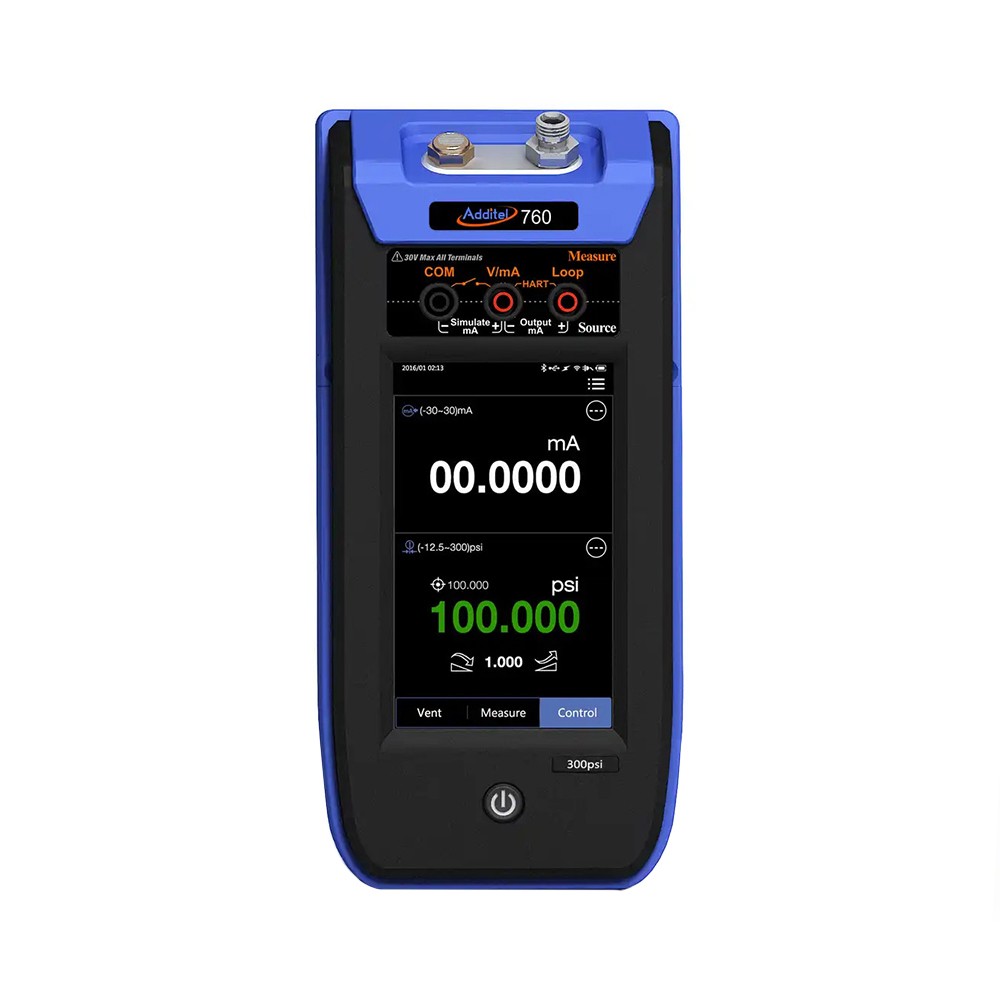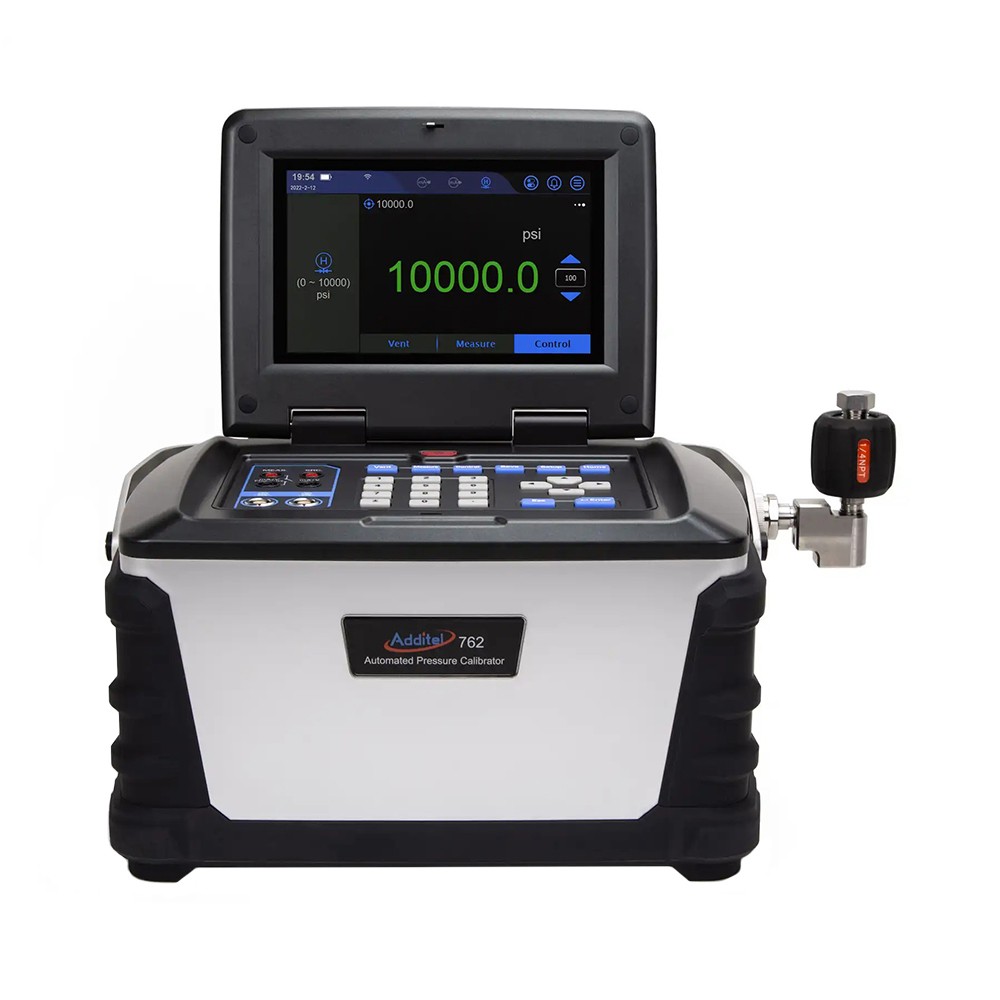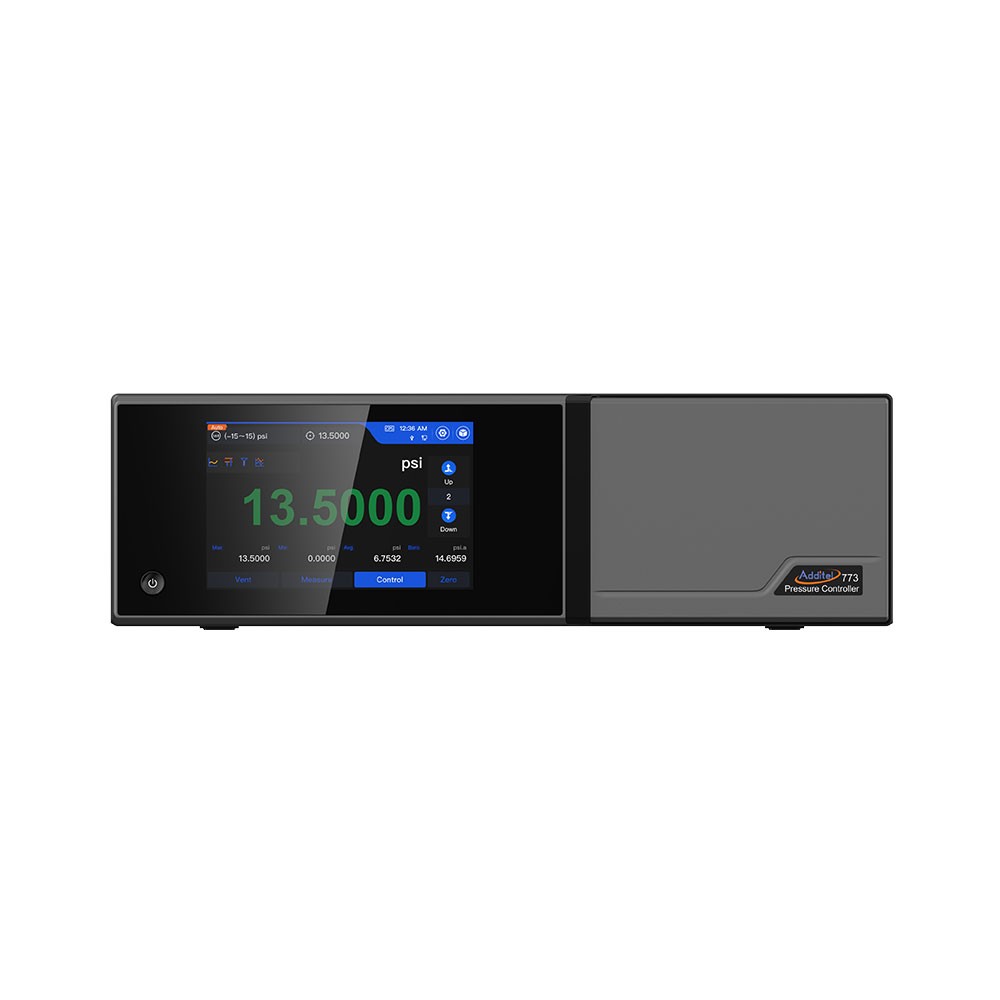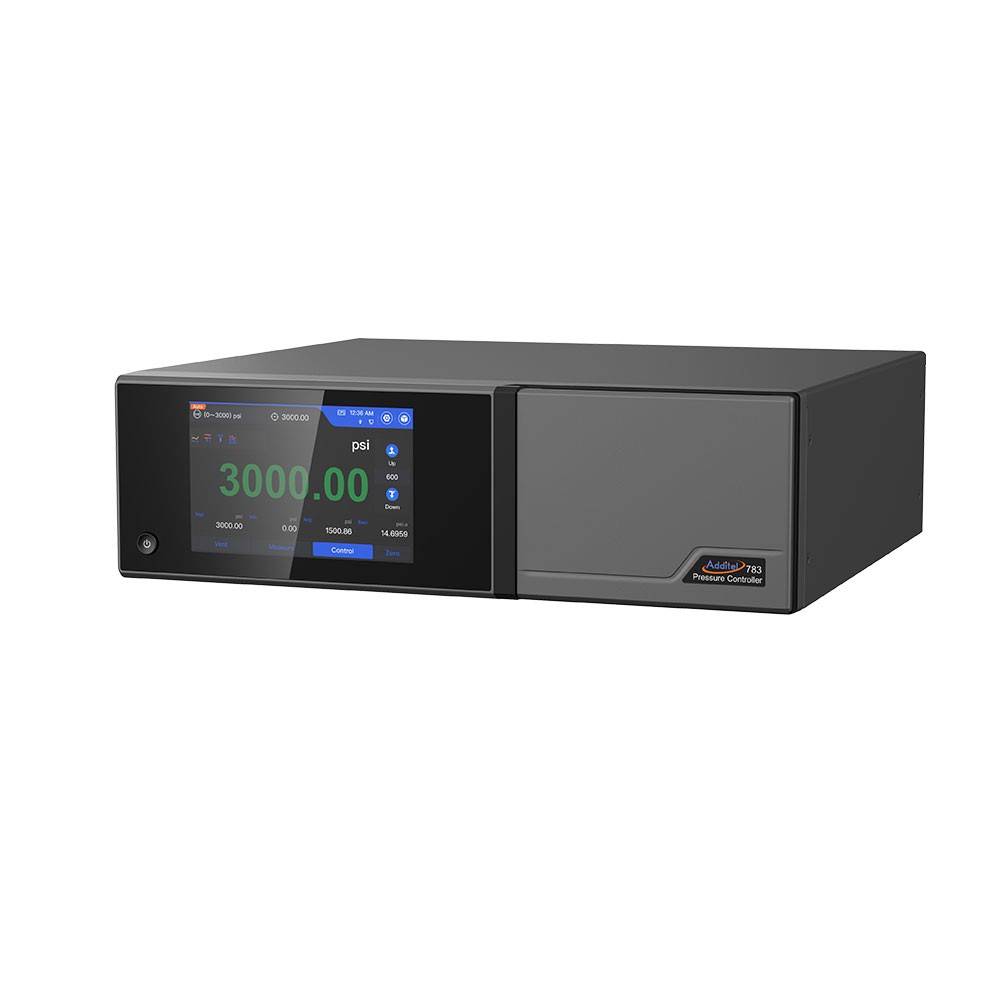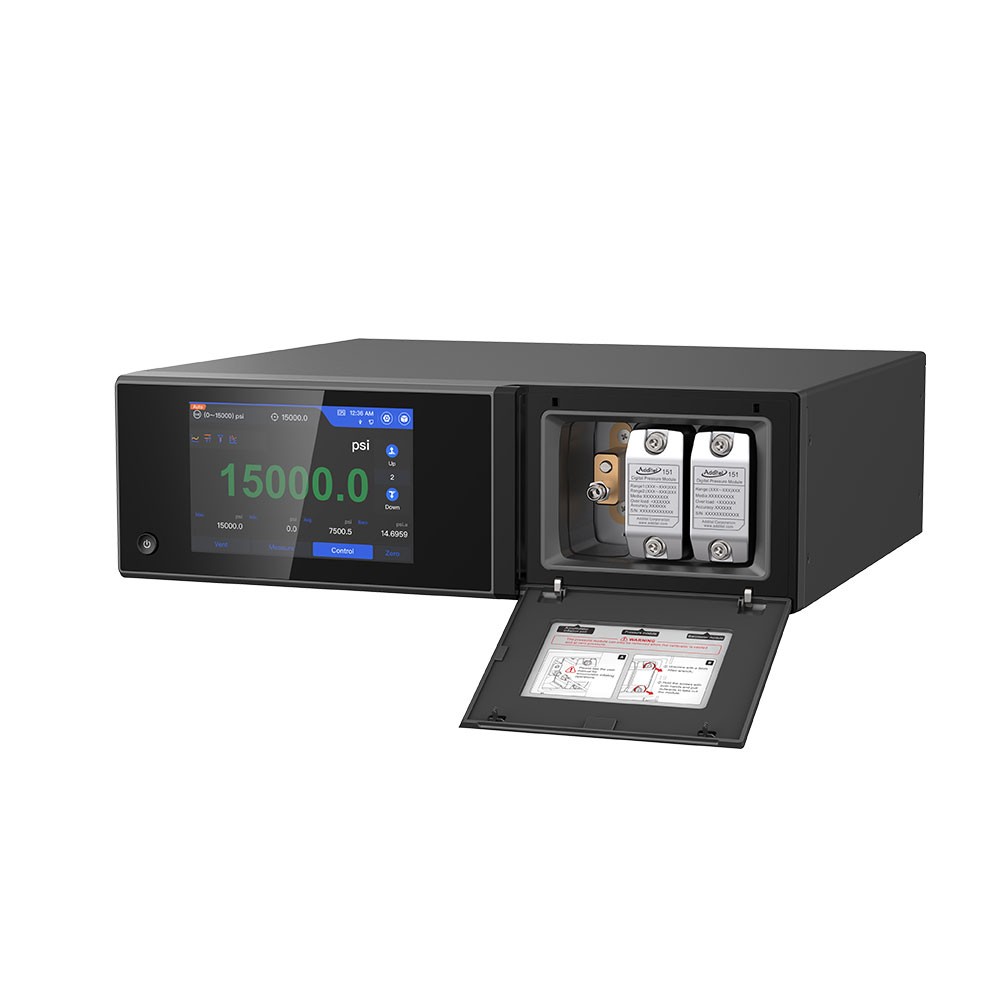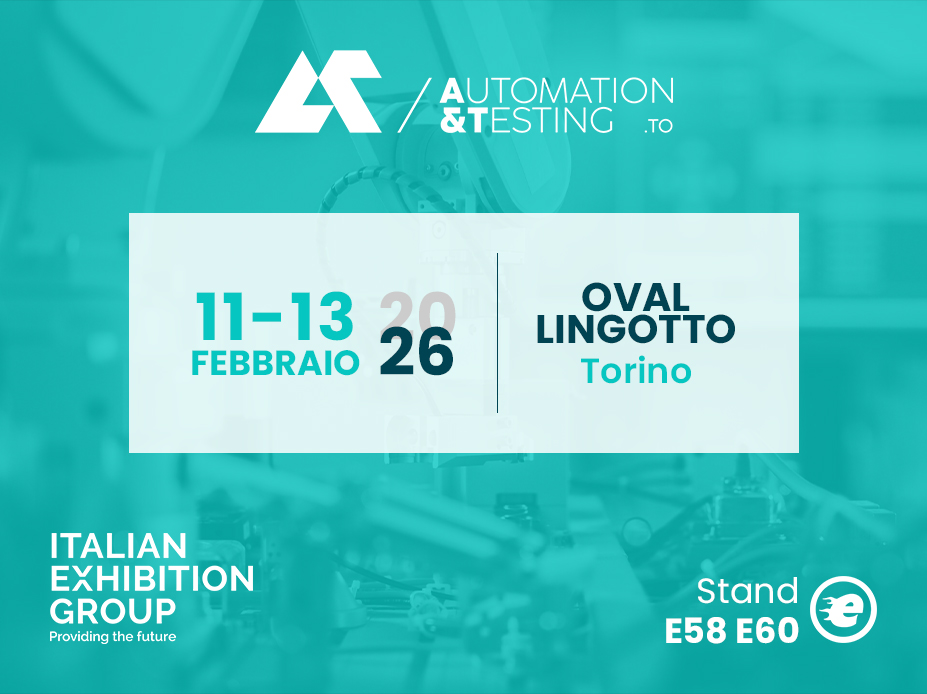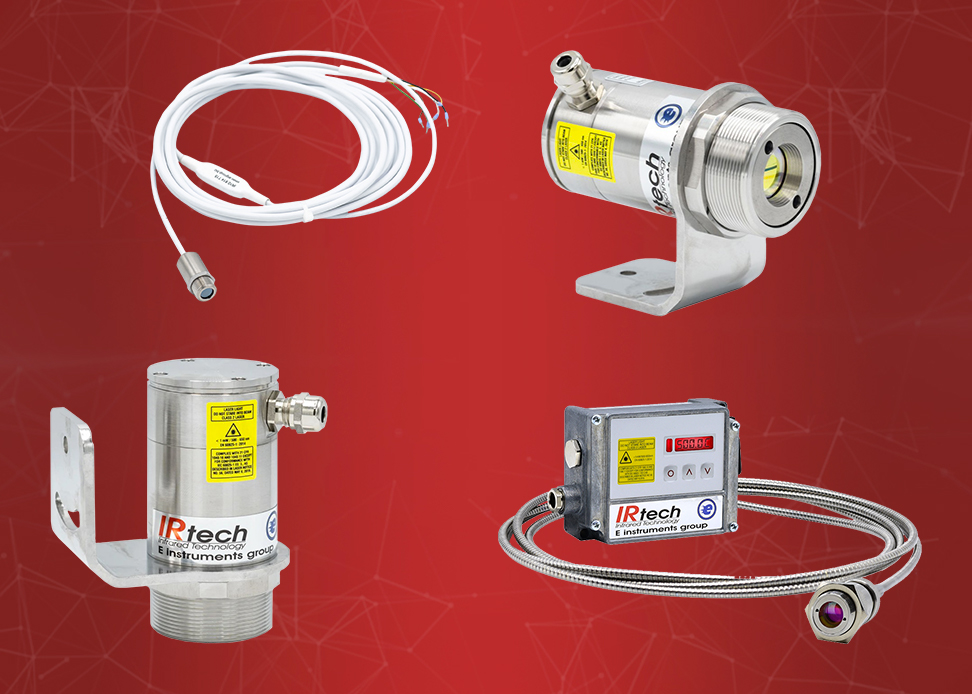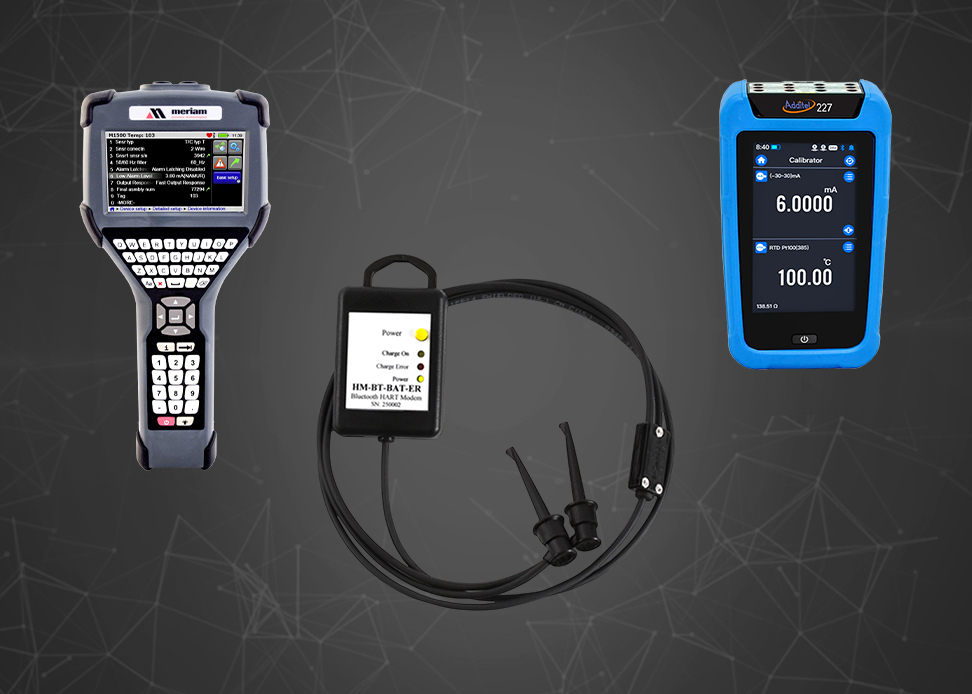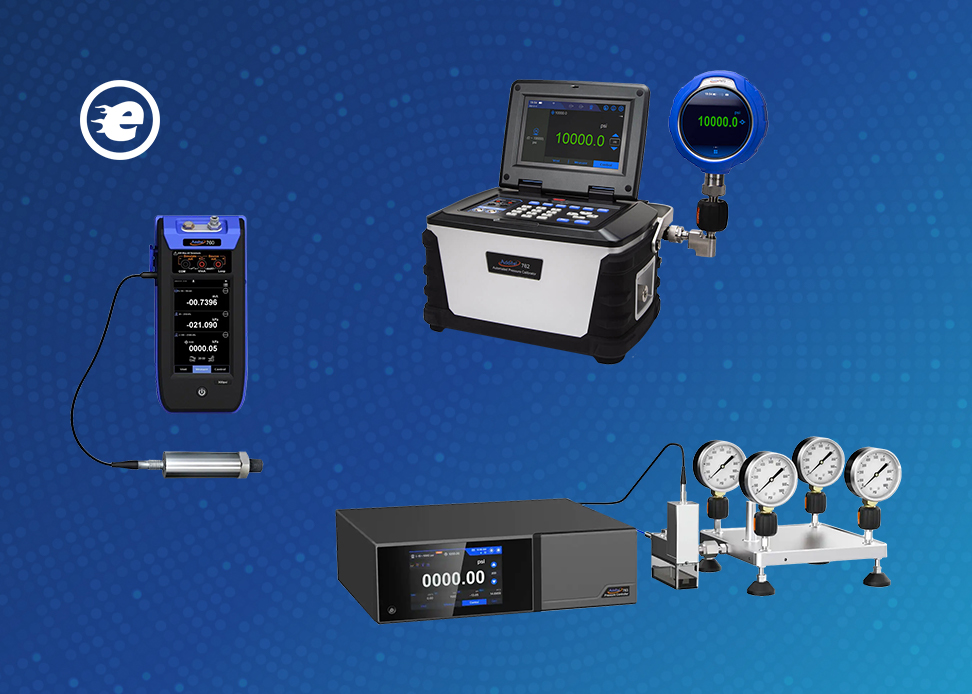
In today’s metrological and industrial landscape, accurate pressure measurement is essential to ensure safety, quality, and regulatory compliance.
Automatic pressure calibrators now represent one of the most advanced solutions for optimizing measurement and calibration processes, offering maximum precision, reduced operational errors, and full digital traceability of data.
Compared to traditional systems, these instruments combine automated technology, electronic control, and digital data management, enabling fast and repeatable calibrations both in the laboratory and directly in the field.
Whether it’s for automatic pressure calibration or for periodic on-site verification, automation in calibration has become a key step toward the future—ensuring more efficient and sustainable maintenance.
What Is an Automatic Pressure Calibrator and How It Works
An automatic pressure calibrator is a precision instrument designed to generate, control, and automatically maintain a set pressure value, eliminating the need for manual intervention by the operator.
Thanks to an electronic internal pressure controller, the device can automatically compensate for minor leaks, ensuring a stable and accurate reading even over extended periods of time.
Unlike manual calibrators, which require constant adjustments and supervision, these instruments operate autonomously to:
- generate the desired pressure;
- monitor the value in real time;
- automatically compensate for any variations.
The operator can manage the entire process remotely via Bluetooth or serial connection, using a digital interface that allows viewing of measurements and adjustment of operating parameters from a distance.
This feature makes automatic pressure calibrators ideal for use in complex industrial systems or remote installations, where safety and rapid response are essential.
In addition, portable pressure calibrators offer excellent convenience for on-site testing, while laboratory or bench pressure calibrators provide maximum stability and accuracy in metrological verification.
Both solutions meet technical requirements across various contexts — from industrial production to research and development.
The Advantages of Automatic Pressure Calibration
The introduction of automatic pressure calibrators has revolutionized how control and verification are carried out in industrial processes.
Among the main benefits are:
- Reduction of operational errors: automation eliminates inaccuracies caused by manual handling, recording and transferring data in digital format.
- Efficiency and time savings: automatic systems perform calibration operations autonomously and more quickly, allowing immediate data retrieval.
- Higher precision and reliability: digital controllers maintain constant and stable pressure over time, improving the accuracy and repeatability of results.
- Traceability and regulatory compliance: electronically recorded data simplifies audits, certification, and documentation management.
- Optimization of industrial processes: integration with dedicated software allows for detailed analysis and scheduling of calibrations according to actual operational needs.
The adoption of industrial pressure calibrators enables companies to achieve higher standards of efficiency, safety, and quality control — transforming calibration from a simple technical procedure into a truly strategic process.
Operator Comfort and Safety: An Essential Consideration
The introduction of automatic pressure calibrators has brought significant benefits not only in terms of precision and productivity but also regarding ergonomics and operator safety.
In traditional methods, generating several bars of pressure manually requires time, focus, and considerable physical effort — particularly demanding when working on repetitive tasks or calibrating multiple instruments consecutively.
With automatic pressure calibration, manual intervention is drastically reduced: the system autonomously generates and controls pressure, eliminating the need for manual adjustments.
This not only minimizes operator fatigue but also enhances overall productivity within the calibration department, allowing personnel to focus on analysis and supervision rather than physical execution.
Another key advantage is remote process management: through serial or Bluetooth connection and digital control functions, it is possible to monitor and adjust parameters remotely — even from areas not directly accessible, such as behind panels or in restricted environments.
This approach improves operational safety, reduces the risk of errors or incidents, and ensures a more efficient, automated, and reliable working environment.
Digitalization and Data Management in Calibration
Digitalization is one of the key aspects in the evolution of automatic pressure calibrators, transforming the way data is acquired, stored, and analyzed.
Each recorded measurement is saved in electronic format, allowing for immediate and secure archiving of information, with the ability to retrieve and compare data at any time.
The use of digital calibration certificates eliminates the need for paper documentation, reducing transcription errors and simplifying audit management.
Modern pressure calibration instruments also feature automatic data export functions to dedicated software such as LAND or ACAL, which allow centralized certificate management, complete digital traceability, and an overview of all calibration operations performed.
This approach not only strengthens regulatory compliance but also guarantees a transparent and well-documented audit trail, now essential in highly regulated sectors.
Furthermore, digital data management contributes to environmental sustainability by reducing paper usage and simplifying long-term data storage.
In summary, digitalization turns automatic pressure calibrators into smart, interconnected instruments that integrate seamlessly into corporate quality systems, providing strategic insights for optimizing calibration processes.
Additel Solutions: Automatic Pressure Calibrators
E Instruments offers a complete range of Additel automatic pressure calibrators, designed to meet the needs for precision, efficiency, and flexibility of technicians, laboratories, and companies operating in complex industrial environments.
The range is divided into two main categories:
- Portable instruments for field or process applications;
- Bench models for accredited laboratories and OEM manufacturers.
With their robust design, high-precision digital controllers, and intuitive interfaces, these instruments enable full automation of the pressure calibration process, significantly reducing calibration time while ensuring traceable and repeatable results over time.
ADT760 – ADT761A – ADT762 Series: Versatility for Laboratory and Field
The ADT760, ADT761A, and ADT762 models represent the ideal solution for those requiring high-performance portable pressure calibrators, suitable for both laboratory use and direct process applications.
These pressure calibration instruments integrate precision automatic controllers capable of generating and maintaining pressure with exceptional stability.
Their compact design and battery operation make them ideal for field work, while Bluetooth remote management ensures safe operation even from a distance.
Key features include:
- Full automation of pressure generation and control;
- Automatic leak compensation for stable readings over time;
- Digital data storage and transfer;
- Intuitive interface with built-in calibration documentation functions.
These models perfectly combine metrological precision and operational flexibility, delivering maximum performance under any working condition.
ADT773 – ADT783 – ADT793 Series: Bench Solutions for Laboratories and OEMs
For applications that demand the highest level of stability and consistency, laboratory pressure calibrators such as the ADT773, ADT783, and ADT793 deliver outstanding performance.
Designed for metrological laboratories and OEM equipment manufacturers, these instruments provide extremely accurate, stable, and fully documented automatic pressure calibration.
Equipped with high-precision electronic controllers, they can automatically generate pressures up to very high values while maintaining exceptional repeatability, even during extended calibration cycles.
Additionally, they feature advanced functions for data analysis, reporting, and digital traceability, making them ideal for environments where regulatory compliance and measurement documentation are critical.
Main strengths:
- Long-term stability and guaranteed repeatability;
- Digital management and archiving of calibration data;
- Compatibility with certified management software;
- Tailored solutions for OEM applications and accredited laboratories.
Thanks to their reliability, these models represent the benchmark standard for professionals seeking precision, automation, and complete control in the pressure calibration process.
Why Choose an Automatic Pressure Calibrator
In the field of automatic pressure calibration, the use of advanced instruments such as automatic pressure calibrators marks a key step toward smarter and more efficient industrial processes.
Their ability to minimize human error, accelerate operations, enhance operator safety, and ensure full digital traceability makes them indispensable tools for any organization aiming to elevate its standards of efficiency and compliance.
Whether choosing portable pressure calibrators for field interventions or laboratory pressure calibrators for metrological environments, the Additel range, distributed in Italy by E Instruments for over a decade, offers comprehensive and reliable solutions for every application.
Integration with dedicated software such as LAND or ACAL further enables smooth, sustainable, and fully traceable digital management — meeting the most demanding audit and compliance requirements.
Relying on E Instruments means having a trusted partner with deep experience in measurement and calibration instrumentation, offering technical consulting, training, and long-term support in selecting the most suitable systems.
The goal is simple yet strategic: to help companies work better — with more precise instruments, faster processes, and more reliable results.



